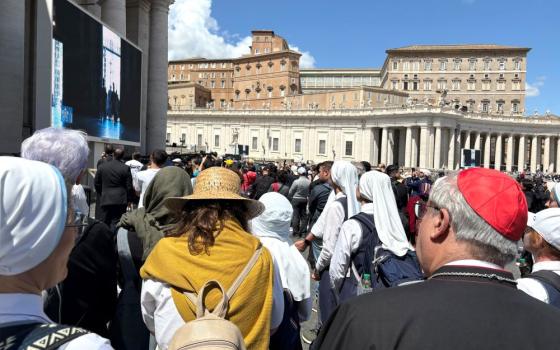A French court has told authorities in Ploermel, France, to remove the small town's statue of St. John Paul II on claims the statue's placement in a public square violated the separation of church and state.
While the court said the statue's location and size are "ostentatious" in nature, the main issue was not with the image of the pope, but rather, the public display of the statue under a cross, according to a Vatican Radio report Wednesday.
The administrative court of Rennes declared that the monument violates French laws concerning the separation of church and state and the constitutional principle of "laicite," which is the absence of government interfering in religious matters and of religious involvement in government affairs.
The bronze statue, which stands 29 feet tall, displays John Paul praying under an arch that supports a cross, and reads "Do not be afraid," the late pope's famous words from his papal inauguration in 1978.
Ploermel Mayor Patrick Le Diffon said he will appeal the court order because "it wasn't for the man of the church, but for the man of state that the monument was dedicated in a public square."
When the statue was unveiled in 2006, the mayor at the time, Paul Anselin, said John Paul was "a giant of the 20th century who participated in the fall of the Iron Curtain."
Russian sculptor Zurab Tsereteli, who made the statue, said he will not approve of changes to any part of the monument, including removal of the cross.
The recent order is the latest example of court-ordered or legal restrictions on the public expression of religious faith in France.
One of the most controversial was a government ban in 2004 on the wearing of Islamic head scarves and other religious garb in public schools. While the law's aim was to aid Muslim integration into French society, critics, including many Christian leaders, said it infringed on the freedom of religious expression.
During a visit to France in 2008, Pope Benedict XVI called for a new chapter of church-state cooperation, saying modern society greatly needs the inspiration of the Gospel.
He said it was right to "insist on the distinction between the political realm and that of religion in order to preserve both the religious freedom of citizens and the responsibility of the state toward them."
At the same time, he said, society must become more aware of "the irreplaceable role of religion" in forming consciences and instilling values.


